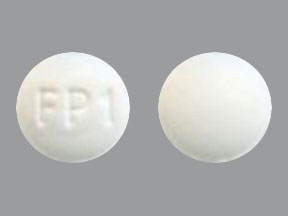
Lurasidone Coupons & Savings Card – Discount Prices from $8.98
Generic for: Latuda
My prescription
Edit
20MG, Lurasidone (30 Tablets)
Select pharmacy

CVS
$21.53
COUPON PRICE
Walmart
$8.98
COUPON PRICE
Walgreens
$14.91
COUPON PRICE
Albertsons
$19.94
COUPON PRICELurasidone savings card
Show this card to your pharmacist
Walmart
$8.98
BIN
ID
PCN
GRP
019876
LHD7EE6783
CHIPPO
LHX
Powered by
More prescriptions for schizophrenia
More prescriptions for schizophrenia
Price history for Latuda (brand) & Lurasidone (generic)
30 Tablets, 20MG
Average retail price for Latuda
Average retail price for Lurasidone
Average SaveHealth price for Lurasidone
Our price history data is based on aggregated prescription data collected from participating pharmacies in America. Our prescription data updates daily to reflect the latest price changes. If you notice a missing data point, it means there wasn't sufficient data available to generate a monetary value for that date.
We analyzed Lurasidone prices for (20MG, 30 Tablets) over the last 12 months. The average retail price was $84.50, while the average price using the SaveHealth discount card was $19.13. That's a savings of approximately 77.36% when using our Lurasidone coupon.
Compared to the generic version, Latuda had an average price of $1738.77 over the same time period. With the SaveHealth savings card, Lurasidone is 98.90% cheaper on average than Latuda.
*Retail prices are based on pharmacy claims data, and may not be accurate when we don't have enough claims.
Lurasidone dosage forms
Dosage Quantity Price from Per unit 20MG 30 Tablets $8.98 $0.30 20MG 1 Tablet $2.72 $2.72 20MG 500 Tablets $80.20 $0.16 40MG 1 Tablet $2.82 $2.82 40MG 30 Tablets $12.18 $0.41 40MG 90 Tablets $37.49 $0.42 40MG 100 Tablets $38.73 $0.39 40MG 500 Tablets $88.45 $0.18 60MG 1 Tablet $2.96 $2.96 60MG 20 Tablets $11.77 $0.59
| Dosage | Quantity | Price from | Per unit |
|---|---|---|---|
| 20MG | 30 Tablets | $8.98 | $0.30 |
| 20MG | 1 Tablet | $2.72 | $2.72 |
| 20MG | 500 Tablets | $80.20 | $0.16 |
| 40MG | 1 Tablet | $2.82 | $2.82 |
| 40MG | 30 Tablets | $12.18 | $0.41 |
| 40MG | 90 Tablets | $37.49 | $0.42 |
| 40MG | 100 Tablets | $38.73 | $0.39 |
| 40MG | 500 Tablets | $88.45 | $0.18 |
| 60MG | 1 Tablet | $2.96 | $2.96 |
| 60MG | 20 Tablets | $11.77 | $0.59 |
| 60MG | 30 Tablets | $16.41 | $0.55 |
| 60MG | 100 Tablets | $42.28 | $0.42 |
| 60MG | 500 Tablets | $106.20 | $0.21 |
| 80MG | 1 Tablet | $3.04 | $3.04 |
| 80MG | 30 Tablets | $18.64 | $0.62 |
| 80MG | 100 Tablets | $43.74 | $0.44 |
| 80MG | 500 Tablets | $113.50 | $0.23 |
| 120MG | 30 Tablets | $23.03 | $0.77 |
| 120MG | 500 Tablets | $173.40 | $0.35 |
